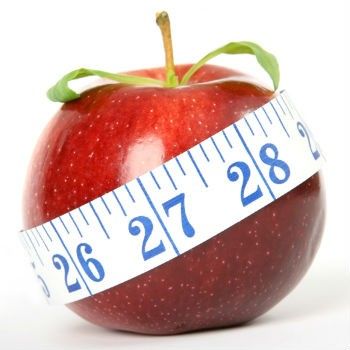January 1 may have inspired thousands of weight-loss resolutions, but organizers of Healthy Weight Week hope to inspire people to love their bodies as they are. From January 20 to 26, people across the globe can join the event’s organizers in celebrating healthy, diet-free lifestyles and positive body image for all.
What’s the Deal?
It’s no secret that Western cultures idealize thinness, particularly in women — even, sometimes, at the cost of health. Now in its second decade, the annual Healthy Weight Week, sponsored by the Healthy Weight Network, seeks to combat these potentially unhealthy standards of beauty. The week celebrates non-dieting lifestyles that promote both healthy habits and body acceptance. During the week, people are encouraged to eat well, stay active, and celebrate diversity by viewing themselves and others in a positive light. Instead of feeling miserable about failed weight loss attempts, organizers hope people will focus on how to be healthy and happy at their size, whatever that may be.
In addition to its public awareness campaign, Healthy Weight Week features two sets of awards. The Healthy Body Image Award goes to individuals, organizations, and even countries engaged in redefining beauty, promoting realistic body image, and combating weight discrimination. This year’s winners include Israel, for its new law requiring fashion and runway models to maintain a healthy weight; British singer Adele, for maintaining that it’s not her weight but her music that defines her career; A Chance to Heal, an eating disorders prevention program; and the Healthy Body Image curriculum, a school program designed specifically for fourth through sixth graders.
On the other hand, the Slim Chance Awards “dishonor” the worst weight-loss products and promotions of the year. 2012’s awardees include Dr. Oz, for claiming raspberry ketones are a “miracle” fat burner; QuickTrim formulas, which claim to detoxify the body and burn calories but also contain potentially hazardous ingredients; and the Ab Circle Pro for claiming that three minutes a day on the Ab Circle is all that’s needed to lose 10 pounds in two weeks. The Healthy Weight Network charges these claims and gimmicks with perpetuating unhealthy attitudes about our bodies and distorting what constitutes a healthy lifestyle.
Why It Matters
Our cultural obsession with thinness is seriously affecting people’s mental health. Estimates suggest only five percent of American females naturally have the body type portrayed as the “ideal” in media and advertising. That means the only way for other folks to obtain this ideal is by drastically altering their bodies, which might explain why up to 24 million people of all ages and genders suffer from an eating disorder in the U.S. Eating disorders are particularly common in younger people and women: 95 percent of those with an eating disorder are between the ages of 12 and 26, and nearly half of all girls living in the U.S. report being unhappy with their bodies. Meanwhile, more than 90 percent of female college students and 50 percent of teenage girls admit to being on diets and using unhealthy methods to control their weight.
The desperate desire to meet a near-unattainable beauty ideal is strongly linked to media influence
Will you be celebrating Healthy Weight Week? Share in the comments below or get in touch with the author on Twitter @LauraNewc.


